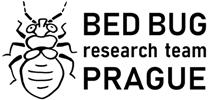Cooperation:
Steffen Roth (University Museum Bergen, Norway)
Klaus Reinhardt (Technische Universität Dresden, Germany)
Benoit Talbot (University of Ottawa, Canada)
Aims:
Wolbachia are intracellular bacteria that live in close nutritional relationships with filarial Nematoda. At the same time, they act as reproductive parasites in arthropods. Although the relationships of Wolbachia became obligate mutualist (beneficial for both sides) with many insect species, such bonds are not stable in long evolutionary times. In such context, the relationship with bed bugs is extraordinary among arthropods. It is based on provision of B vitamins by the bacteria, and the bed bugs and Wolbachia co-speciate (see the figure). We therefore explore the ecological factors of evolution and adaptive significance of such a unique partnership.
Comparison of phylogenetic trees of bed bugs and Wolbachia bacteria
Methods:
Testing co-evolution of bed bug taxa and Wolbachia lineages (multilocus molecular phylogeny), test of the relationship of Wolbachia and bed bug species in vivo by feeding on modified blood (antibiotics, vitamin compensation).
Results:
Balvín et al. 2018 Scientific Reports
